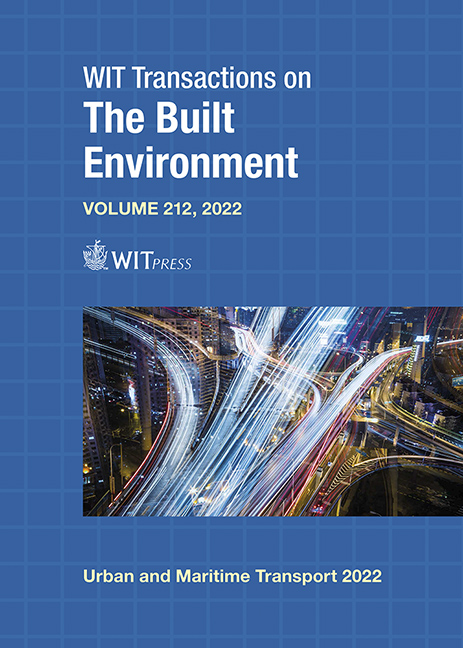URBAN TRANSPORT INFRASTRUCTURE FOR PEOPLE WITH DISABILITIES IN THE CITY OF TSHWANE, SOUTH AFRICA: AN OBSERVATION AUDIT
Price
Free (open access)
Transaction
Volume
212
Pages
14
Page Range
73 - 86
Published
2022
Paper DOI
10.2495/UMT220071
Copyright
Author(s)
BABRA DURI, ROSE LUKE
Abstract
People with disabilities often find it difficult to access public transport. The purpose of this study was to identify issues with urban transport infrastructure in the City of Tshwane that contribute to inaccessible transportation. An observational checklist was prepared to collect data, and the checklist was based on guidelines and best practices for universally accessible transport. The infrastructure elements considered in this study were pavements, street crossings, street furniture, bus stops, bus station, taxi ranks and train stations. To a large extent, the design of transport infrastructure in the City of Tshwane does not comply with universal design principles and, in areas where there was compliance, there was a distinct lack of consistency. The study results revealed that the urban transport infrastructure in the City of Tshwane is not designed to cater to the needs of people with disability. The results also revealed that existing transport infrastructure lacks maintenance. It is recommended that the city train city planners and built environment professionals on disability building regulations. City planners and built environment professionals should be conscious of the needs of different groups of people when planning and designing city infrastructure.
Keywords
transport barriers, people with disability, transport infrastructure, built environment, pedestrian environment, universal access




